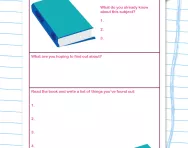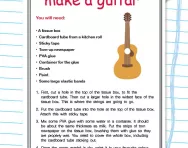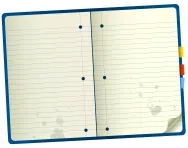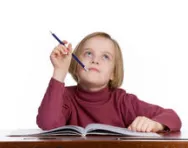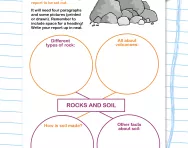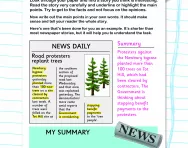Important update from TheSchoolRun
For the past 13 years, TheSchoolRun has been run by a small team of mums working from home, dedicated to providing quality educational resources to primary school parents. Unfortunately, rising supplier costs and falling revenue have made it impossible for us to continue operating, and we’ve had to make the difficult decision to close. The good news: We’ve arranged for another educational provider to take over many of our resources. These will be hosted on a new portal, where the content will be updated and expanded to support your child’s learning.
What this means for subscribers:
- Your subscription is still active, and for now, you can keep using the website as normal — just log in with your usual details to access all our articles and resources*.
- In a few months, all resources will move to the new portal. You’ll continue to have access there until your subscription ends. We’ll send you full details nearer the time.
- As a thank you for your support, we’ll also be sending you 16 primary school eBooks (worth £108.84) to download and keep.
A few changes to be aware of:
- The Learning Journey weekly email has ended, but your child’s plan will still be updated on your dashboard each Monday. Just log in to see the recommended worksheets.
- The 11+ weekly emails have now ended. We sent you all the remaining emails in the series at the end of March — please check your inbox (and spam folder) if you haven’t seen them. You can also follow the full programme here: 11+ Learning Journey.
If you have any questions, please contact us at [email protected]. Thank you for being part of our journey it’s been a privilege to support your family’s learning.
*If you need to reset your password, it will still work as usual. Please check your spam folder if the reset email doesn’t appear in your inbox.
What is non-fiction?
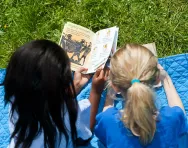
A non-fiction text is any text that is not a story. Each year at primary school, children will focus on a range of narrative, non-fiction and poetry texts in literacy.
Non-fiction texts studied at primary school include instruction texts, recounts, information texts, explanation texts, persuasive texts, biography, journalistic writing and argument texts.
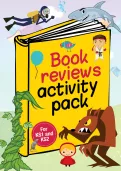
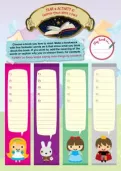
Claim A FREE Book Reviews Activity Pack!
- A huge collection of creative writing & reading comprehension resources
- Exploare texts, deepen understanding, share opinions
- For Year 1 to Year 6
Instruction texts
An instruction text is a text such as a recipe or manual. This will include a 'You will need' list (ingredients or tools) and then numbered points on how to carry out a certain activity. They include imperative ('bossy') verbs, such as 'put', 'stick', 'stir' etc.
Recounts
A recount text is a piece of writing that explains an event that has happened. A diary entry is a recount text, as is a newspaper article explaining an event that has happened. They are usually written in the past tense and include the use of time connectives.
Information texts / Non-chronological reports
An information text is a text giving information about a particular thing, for example: Ancient Egypt, recycling or volcanoes. Information texts are sometimes called non-chronological reports, because they are reporting information about something without mentioning the order in which something has happened.
Explanation texts
An explanation text is one which describes a process, for example: the water cycle, how bees make honey or how a car is made. They are usually written in the present tense, with numbered points and diagrams or pictures to make the process clear.
Persuasive texts
Persuasive texts can take a number of forms, for example: an advert persuading you to buy some chocolate, a poster encouraging people to stop smoking or a travel brochure enticing the reader to go to a particular country.
Biography and autobiography
An autobiography is someone's account of their own life; a biography is a writer's account of someone else's life (usually someone famous). Writing of biographies is usually linked to the theme the class are studying.
Journalistic writing
Children will read news reports and look at the features, such as: headlines, pictures, captions, quotations, paragraphs, formal tone, etc. They will then be asked to write their own newspaper report, usually related to a theme they are studying.
Argument texts
An argument text is a text written about a subject, where the writer is either 'for' or 'against' the subject (a pros and cons text, in other words). For example, you could write an argument text for or against zoos, smoking, school uniform or e-readers. Argument texts include facts and research and are usually written using formal language.
When studying non-fiction texts, children will usually be given a range of texts that fall within the genre of text they are studying. They will be encouraged to look at the features of these texts and how they are set out. They will then be encouraged to gather their own information and start drafting this into a similar text. Teachers will support children with the editing and re-writing process until they are ready to write their 'neat' piece of writing.

